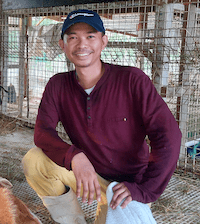In an effort to enhance food production, President Ferdinand Marcos of the Philippines took a monumental step on Friday by pardoning more than half a million farmers burdened with a $1.04 billion debt related to land.
A legislation called the “New Agrarian Emancipation Act” was signed by the President, leading to the forgiveness of the outstanding debt owed by farmers who had obtained land through a land reform program in 1988. Over a period of 30 years, these farmers had struggled to meet their payment obligations.
During a signing ceremony held at the presidential palace, President Marcos justified the government’s assumption of responsibility by acknowledging the financial constraints faced by the farmers that had hindered their ability to repay the substantial debt.
To prioritize the nation’s food security, President Marcos confirmed the cancellation of loans issued by government banks.
Following the peaceful “People Power” revolt in 1986, a law was enacted to distribute approximately 4.8 million hectares (11.9 million acres) of land among nearly three million landless farmers, constituting 16 percent of the country’s total land area.
The introduction of the new legislation was prompted by the fact that nearly 1.2 million hectares of redistributed farmland had remained unpaid, resulting in a decline in the agricultural sector’s contribution to the country’s economy.
President Marcos estimated that the debt write-off would benefit over 610,000 beneficiaries of land reform. However, this measure would come at a cost of 57.65 billion pesos ($1.04 billion) to the government. Additionally, an additional 206 million pesos would be allocated to compensate landowners whose properties had been transferred to tenants.
With an emphasis on the urgency of revitalizing the agriculture sector, President Marcos, who also serves as the agriculture minister, expressed a strong conviction.
Since assuming office last year, the archipelago nation has grappled with shortages and significant price increases in essential farm commodities, such as onions and sugar. Furthermore, there has been a surge in rice imports, a crucial staple food.

Mr. Jaycee de Guzman is a self-taught agriculturist and the founder and patriarch of Alpha Agventure Farms, recognized as the leading backyard farm in the Philippines. With a rich background in livestock farming dating back to the early 1990s, Mr. de Guzman combines his expertise in agriculture with over 20 years of experience in computer science, digital marketing, and finance. His diverse skill set and leadership have been instrumental in the success of Alpha Agventure Farms.


